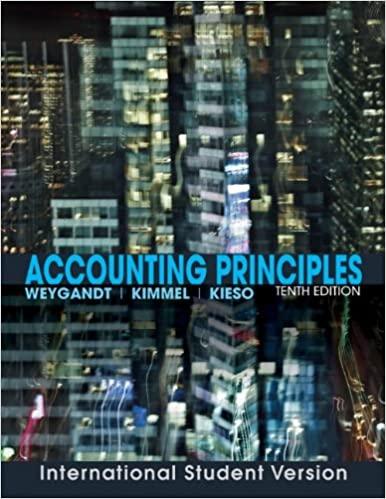Airlines/e.g., Contral to 2. Pharmaceutical drugs (e.g. Merck) . 3. Package delivery (e.g.. United Parcel S 4. Banking (e.g., Bank of America) . 5. Oil & gas (e.g., Exxon Mobil) .. 6. E-commerce (e.g., eBay) 7. Automotive (e.g. Toyota) . . . Delta Artines) EXERCISE 1-7 Ethics in Business Consumers and attorney generals in more than 40 states accused a prominent nationwide chain of auto repair shops of misleading customers and selling them unnecessary parts and brake jobs to front-end alignments. Lynn Sharpe Paine reported the situation as follows in "Man aging for Organizational Integrity." Harvard Business Review, Volume 72 Issue3 In the face of declining revenues, shrinking market share, and an increasin market...management attempted to spur performance of its auto centers.... The autiomo- tive service advisers were given product-specific sales quotas sell so many spngs shock absorbers, alignments, or brake jobs per shift-and paid a commission based on sales... [Flailure to meet quotas could lead to a transfer or a reduction in work hours. Some employ- ees spoke of the "pressure, pressure, pressure" to bring in sales gly only way to satisfy top management was by selling products and services to customers that they didn't really need. This pressure-cooker atmosphere created conditions under which employees felt that the Suppose all automotive repair businesses routinely followed the practice of attemping to sell ustomers unnecessary parts and services equired ant in the automotive service Hw would this behavior affect customers? How might customers attempt to protect them- Airlines/e.g., Contral to 2. Pharmaceutical drugs (e.g. Merck) . 3. Package delivery (e.g.. United Parcel S 4. Banking (e.g., Bank of America) . 5. Oil & gas (e.g., Exxon Mobil) .. 6. E-commerce (e.g., eBay) 7. Automotive (e.g. Toyota) . . . Delta Artines) EXERCISE 1-7 Ethics in Business Consumers and attorney generals in more than 40 states accused a prominent nationwide chain of auto repair shops of misleading customers and selling them unnecessary parts and brake jobs to front-end alignments. Lynn Sharpe Paine reported the situation as follows in "Man aging for Organizational Integrity." Harvard Business Review, Volume 72 Issue3 In the face of declining revenues, shrinking market share, and an increasin market...management attempted to spur performance of its auto centers.... The autiomo- tive service advisers were given product-specific sales quotas sell so many spngs shock absorbers, alignments, or brake jobs per shift-and paid a commission based on sales... [Flailure to meet quotas could lead to a transfer or a reduction in work hours. Some employ- ees spoke of the "pressure, pressure, pressure" to bring in sales gly only way to satisfy top management was by selling products and services to customers that they didn't really need. This pressure-cooker atmosphere created conditions under which employees felt that the Suppose all automotive repair businesses routinely followed the practice of attemping to sell ustomers unnecessary parts and services equired ant in the automotive service Hw would this behavior affect customers? How might customers attempt to protect them







